The Ultimate Guide to the Best HR Software for Small Businesses in 2025
Optimize Your HR Processes Using the Right Tool
Small business owners often have to wear many hats and managing human resources can ultimately be challenging when resources and time are limited. Selecting pertinent HR software small businesses need is imperative to minimize and streamline HR processes, better manage their workforce, and remain competitive in the cut-throat scenario that the fast-paced market scenario brings along.
In this guide, we’ll walk you through everything you need to know about HR software: why it’s a game changer, what you should always be looking for, and how to find the best solution for your business.
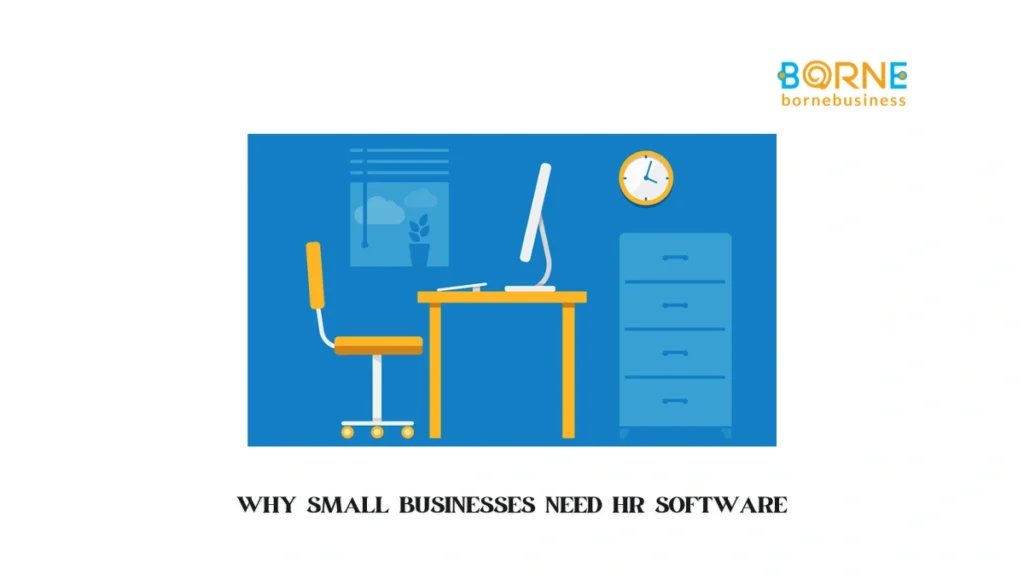
Why Small Businesses Need HR Software
Challenges in HR Operations for Small Businesses
Many small businesses run on lean teams and employees are often expected to wear multiple hats and act as untrained HR personnel. Such a setup only makes it more likely for errors to occur in sensitive areas like payroll management, be it of columns of employees, calculating wages, or compliance with changing labor laws.
Data errors along the way — for example, poor payroll processing or tax misfiling can trigger penalties that distract from the business and reduce employee satisfaction.
Moreover, critical HR functions like hiring, onboarding, and performance reviews take a lot of time when handled manually. However, without the proper tools, these pieces can contribute to inefficiency, miscommunication, and even legal liability. As the company scales, these challenges compound and create a need for more structured and systematic HR management systems.
Advantages of HR Software for SME Owners
Investing in HR software for small businesses is a game lever, providing tools that help streamline and optimize operations:
HR Functions in Streamline Mode Help you Automate Repetitive Tasks like Employee Opening, Time Track, and Benefits Management that can Reduce Administrative Burden.
Stronger Compliance: Use tools to help monitor compliance and minimize the risk of fines, which spells legal peace of mind.
Enhanced Productivity: With HR operations being centralized and obsolete, manual processes can be removed, thus freeing up resources and allowing employees to focus on strategic initiatives and growth.
Hence, HR software is the ultimate solution that guides small businesses through the hurdles of HR functions, paving the way for long-term success.
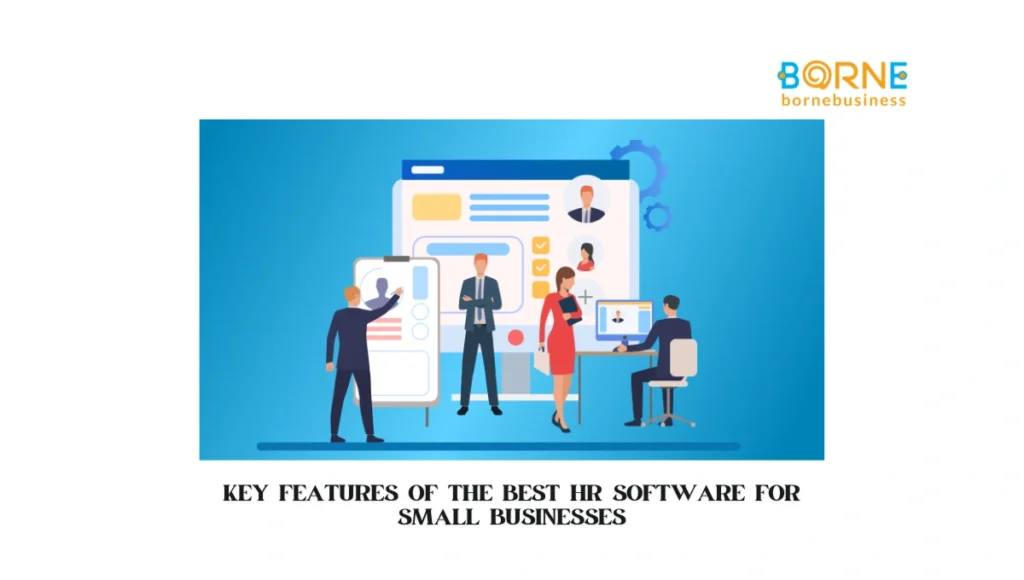
Key Features of the Best HR Software for Small Businesses
Employee Handling and Payroll Management
The top HR software for small businesses combines employee management with payroll capabilities, providing a one-stop platform for essential duties. Collectively these features help small enterprises to control shifts for their employees, manage the attendance of an employee, and help process payroll at the month’s end seamlessly.
The seamless integration means less data re-entry which in turn solves the errors that occur in both wage calculations, as well as during tax deductions. These kinds of systems also can manage benefits administration and direct deposit, which saves time and keeps employees paid on time.
In any case, deploying a full-service solution simplifies the HR processes for resource-constrained businesses and frees teams for growth instead of administrative work.
HR Operations and Performance Management
The software should meet the core HR needs that small businesses have accurate employee data, management of compliance-related documents, and management of essential documentation.
Performance management tools, which help businesses set clear goals, track progress, and provide timely feedback to employees, are equally important. They help promote a culture of accountability and improvement that aligns employee work with the company’s goals.
The automation and centralization of these HR processes can help small enterprises streamline their workforce, maintain transparency, and establish the foundation for sustainable growth.
Different Types of HR Software Solutions
Cloud HR software is the best choice to scale up your HR department.
Cloud-based and provides a contemporary solution with the option to scale for small businesses. Cloud-based solutions allow businesses to run their HR operations from any place, as far as they have an internet connection, obtaining remote teams, the kind of database that aids in positioning HR functions whenever and any time necessary to streamline and upgrade HR operations. Such HR software solutions themselves do not require on-site expensive infrastructure, low-cost IT maintenance of hardware and reduce human error with business owners and HR keeping up with HR in real time.
In addition, the majority of cloud-based solutions have some of the best data security features that keeps sensitive employee data safe from any unauthorized access. A very flexible choice, as businesses can upgrade to an expanded plan to access additional features and capabilities.
Comprehensive HR Platforms Vs Targeted Solutions
We cover the two options that small businesses typically consider when looking for an HR solution: all-in-one HR platforms vs. specialized solutions.
An all-in-one platform offers a complete set of features: one tool to manage HR, payroll, performance, talent management, and compliance! It streamlines workflows and brings important HR functions under one umbrella.
Some small businesses may, however, find that they want more specialized software, which focuses on a particular piece of HR like recruitment or benefits management. These tools provide more focused functionality for specific needs but may not provide a full HR solution without integrating with other software.
Both have their advantages so business owners need to choose the option that makes the most sense for their HR needs and growth prospects.
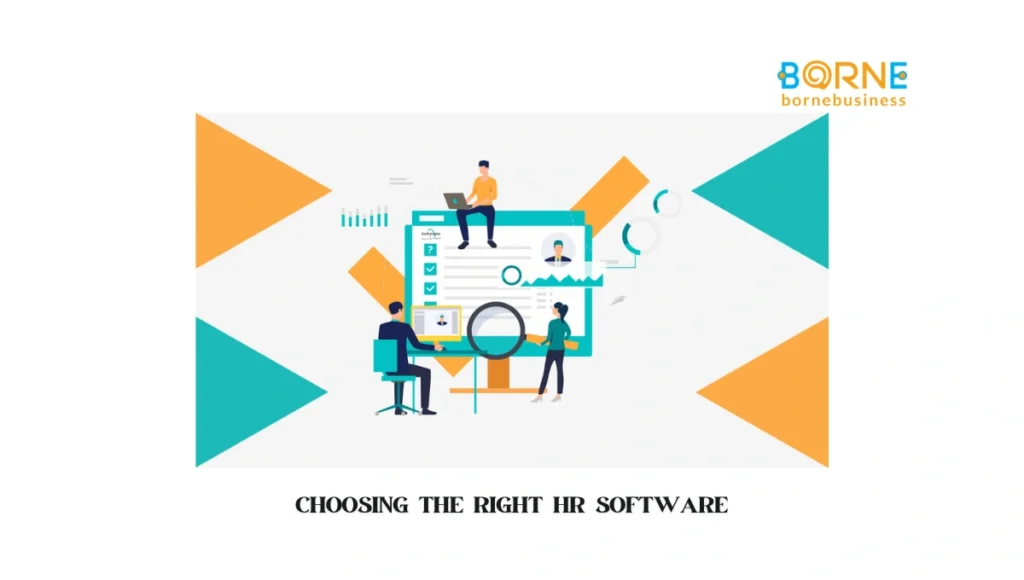
Choosing the Right HR Software
Factors to Consider for Small Business Needs
There are a few key considerations you need to make when choosing HR software for a small business to ensure that the solution serves you in a unique manner.
Scalability: Your HR requirements will change as your business evolves. You have to pick software that can grow with your company, adding features or new employees as necessary, without having to switch platforms.
Recommended Cloud-based solutions are usually scalable, so you do not have to worry about upgrading as your company grows; advanced features are typically available if you need them.
Usability / Ease of Use: Small businesses may not have the luxury of technical expertise, thus your choice of software may have to be intuitive, easy to work on, and simple to get used to. HRMS systems should be easy to use so that even non-technical employees can carry out HR tasks like employee onboarding, payroll processing, and benefits management with little to no training.
Specifically, HR tools should be user-friendly, which reduces the learning curve and ensures that your team is able to adopt the tool without many hassles.
Price: Cost is an important consideration of all but for a small business. Search for the HR software suitable for your budget but also with features that lead to an efficient operation. Certain legal software platforms have a free plan with basic features that are ideal for new businesses or those with fewer employees.
Moreover, many platforms provide flexible pricing models based on the number of users or features needed, so it is more convenient to find a solution that fits your budget.
A Side-by-Side Comparison of Leading HR Software Solutions in 2025
Here are three of the best HR software options for small businesses in 2025 to help you narrow your choices.
Gusto: Gusto is a popular payroll and employee management solution with an easy-to-use interface. It has robust payroll features, payroll filing features, and benefits administration features, which puts it in the top tier of our reviews of excellent small business HR software.
BambooHR: Best for businesses looking for a comprehensive employee data management tool that helps track performance. BambooHR — Excellent HR platform for company personnel records, employee development, and compensation management.
Zoho People: Affordable and feature-rich, Zoho People is for startups and small teams. There are time tracking, leave management, and employee engagement tools to help businesses manage HR without a big price tag.
The best software is the one that matches the requirements of your business, the scale at which you plan to grow, and your budget. So in a view of possible HR solutions majority of which will come looking at scalability, usability, and affordability so that you can boil high-performing HR solutions for small businesses.
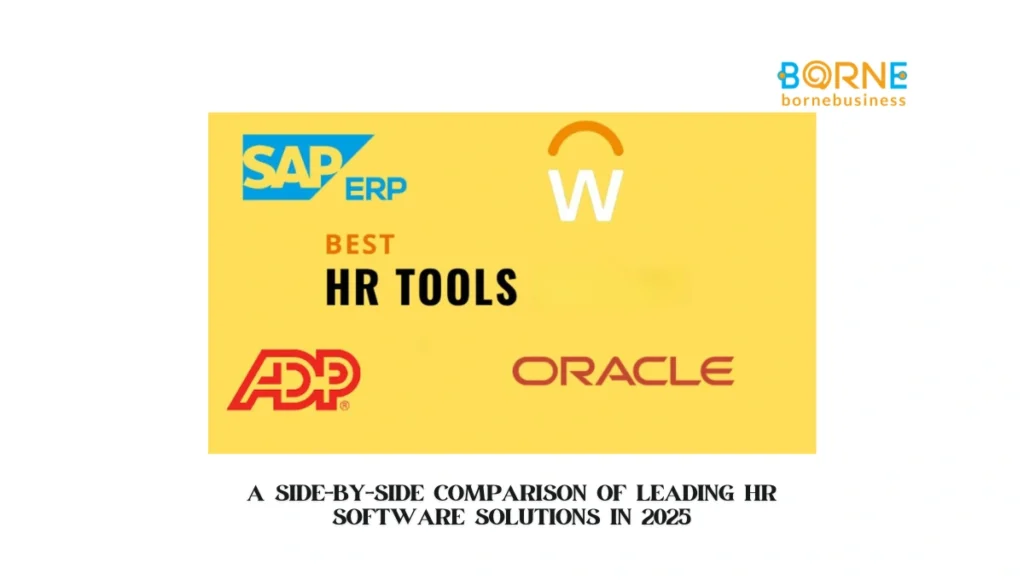
Best HR Software Options for Small Businesses in 2025
HR Tools for Free or Low-Cost
Here are a few HR tools that provide essential functions at a reasonable price for small businesses with tight budgets :
Zoho People: This is a good choice if your business has extremely simple HR requirements. Zoho People provides a free plan for small teams, which makes it a low-cost solution for Start-Ups. It has day-to-day operations features; employee records management, leave tracking, time tracking, etc.
Zoho People also provides tiered pricing that scales as your organization grows, so you can have flexibility under one umbrella without worrying about switching platforms.
Hubstaff: Ideal for small teams in need of time tracking tools and payroll features, Hubstaff is an inexpensive solution that makes employee management a breeze. Not only is it good for time tracking, it also provides task management and productivity monitoring, making it great for remote or hourly employees.
Hubstaff has free and cost-efficient premium plans, providing a quick and simple solution for small businesses looking to scale HR processes with minimal upfront investment.
All-In-One Solutions For Scaling Teams
All-in-one HR software solutions can also offer somewhat more sophisticated offerings, including workforce management and analytics, for businesses looking to scale or centralize HR operations:
BambooHR: A classic for larger companies or companies who need robust employee data, performance tracking, and complex HR analytics. With a broad range of features for onboarding, compensation management, and benefits tracking BambooHR is great for companies with growth in their sight.
Offering an easy-to-use interface along with a range of customizable options, this platform has significant flexibility for businesses looking to make HR processes more efficient as they grow.
Gusto: Gusto provides an entire HR management suite with payroll, compliance, and benefits administration. Its strong HR reporting and HR analytics capabilities help small businesses better manage their workforces, making it a good option for businesses that are getting ready to scale. Gusto also has a simple UI that makes adoption across teams easier and minimizes the learning curve for new users.
These are flexible HR software solutions for businesses of all types, whether you need a free plan to handle simple functions or an integrated platform for advanced HR operations.
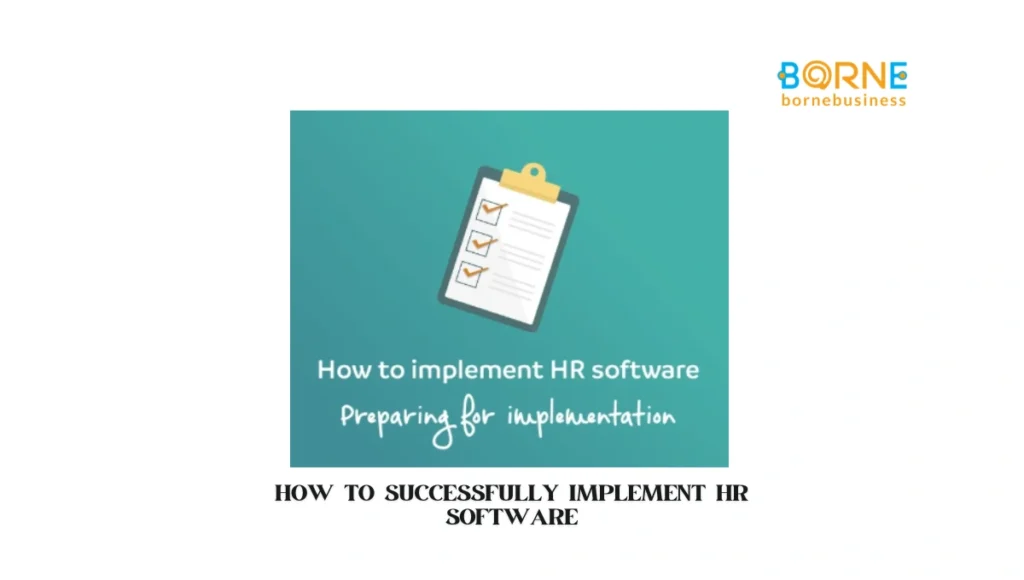
How to Successfully Implement HR Software
Configure the HR Platform
The first step to smoothly implement your HR software is to upload the details of your employees on the platform. These can range from basic information such as names, positions, and contact information to more complex data like payroll records and employee performance reviews. Adjust workflows and HR processes according to your business requirements like leave management, payroll processing, or employee onboarding.
HR software solutions often come with onboarding help in the form of walkthroughs or teams that can get you set up and running as fast as possible.
Scaling Your HR Team and Employees
One of the most crucial things to adopting any seamless HR software is training. Hold in-depth training sessions with your HR team and your employees to familiarize them with the way the system works.
Showcase Key Functionalities Key functionalities to be highlighted include Employee Self Service Portals, Time Tracking, Performance Management, etc. With clear step-by-step instructions and continued support, employees will be confident using the software and will resort to it for the entire HR process. Frequent follow-up sessions and refresher courses will also keep your team well-informed about new features and updates.
Conclusion: What Is the Right Fit for Your Business
Summary of Key Takeaways:
Running small businesses in 2025 means facing obstacles related to HR management and compliance, and many companies are doing so with little resources. An appropriate HR software solution can reduce time and effort spent on important HR processes like payroll, employee management, and performance tracking, improve the overall productivity of the organization, and help to adhere to regulations.
Payroll software like Gusto and Zoho People are amazing choices for small and medium-sized businesses, providing a user-friendly interface, scalability, and key HR features.
Acquiring the best HR software for small businesses is more than a luxury; it’s a calculated move that can streamline processes, foster business growth, and boost employee morale. Discover the better fit today and change how you manage your team.

